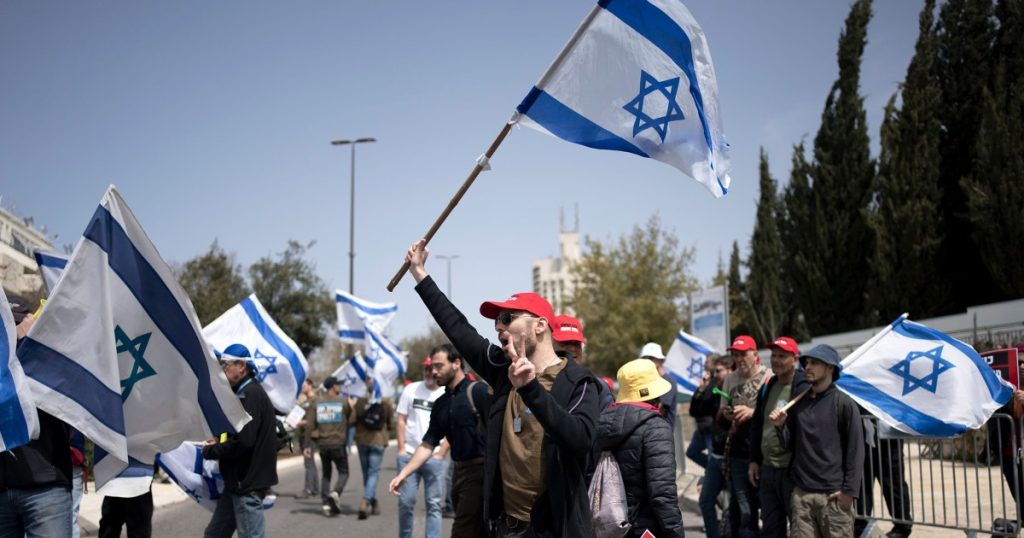Israel’s Supreme Court made a landmark ruling ordering the government to end subsidies for ultra-Orthodox men who do not serve in the army, potentially leading to far-reaching consequences for the government and religious men who refuse military service. Prime Minister Benjamin Netanyahu faces a serious threat to his government as he navigates a split over military service in the national unity government formed after Hamas’ attack. Ultra-Orthodox parties in Netanyahu’s coalition desire draft exemptions, while centrist members demand equal contributions to the war against Hamas. If the ultra-Orthodox parties leave the government, new elections may be triggered, with Netanyahu currently trailing in the polls.
The majority of Jewish men in Israel are required to serve in the military for nearly three years, followed by reserve duty, while women serve two mandatory years. However, ultra-Orthodox men have historically received exemptions to study full-time in religious seminaries, as well as government stipends until age 26. Tensions have escalated amid nearly six months of war, resulting in over 500 Israeli soldier casualties. The Supreme Court deemed the current system discriminatory, giving the government a deadline to present a new plan by June 30. Netanyahu has requested a 30-day extension to find a compromise, but the court has not yet responded.
The ruling affects about a third of the 180,000 seminary students who receive government subsidies for full-time learning, with funds set to be frozen starting April 1. Benny Gantz, Netanyahu’s rival and a member of the War Cabinet, supported the court’s decision, highlighting the importance of all sectors of Israeli society contributing during wartime. Mandatory military service is seen as a rite of passage for Israel’s Jewish majority, but the ultra-Orthodox argue that integrating into the army threatens their traditional way of life, which they believe also safeguards Israel. Religious leaders vow to fight against forcing ultra-Orthodox men into the army and have conducted mass protests in the past.
Aryeh Deri, leader of the ultra-Orthodox Shas party, criticized the court’s decision as “unprecedented bullying of Torah students” in the Jewish state. Netanyahu, in his request for an extension, cited the need for additional time to reach an agreement on enlistment, emphasizing the potential negative impact of enforcing military service without a consensus. The Supreme Court’s ruling marks a significant development in the debate over military service exemptions for ultra-Orthodox men in Israel, posing challenges for the government and religious communities alike. The decision reflects broader concerns about equality, national security, and societal contributions amid ongoing conflicts in the region.


